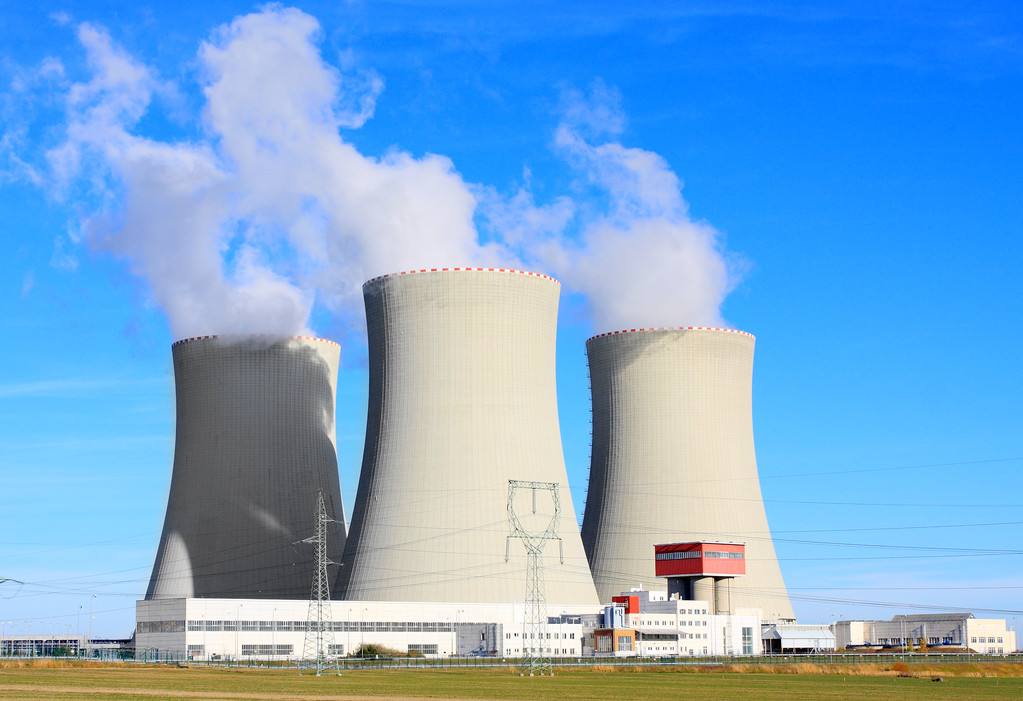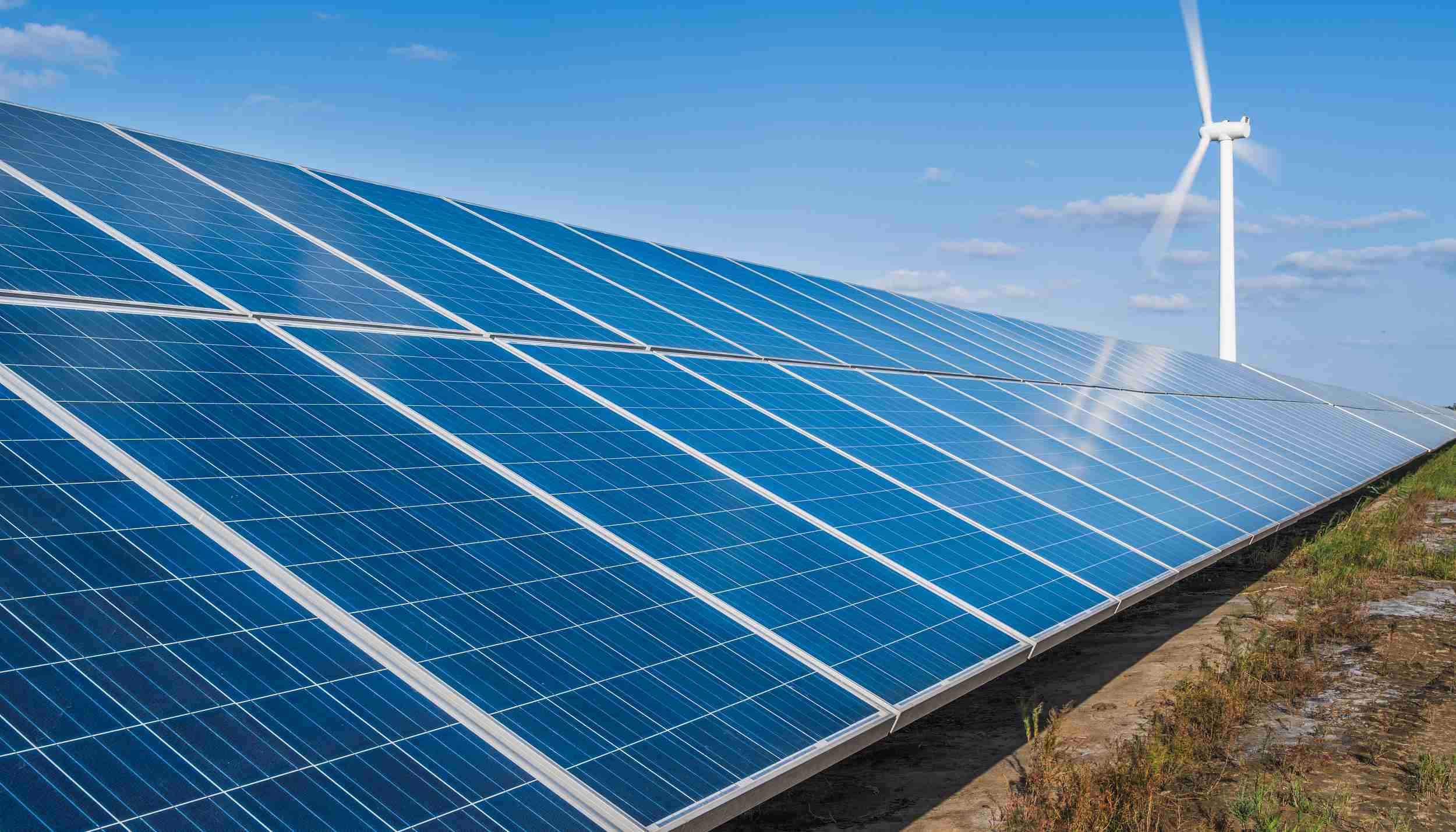
创新背景
能源使用促进人类技术发展的同时也在限制科技发展,提高能源利用率或使用可再生能源对环境和科技发展都至关重要。
创新过程
进入电气时代以来,人类的生产生活就离不开电能,但发电方式所用能源并非用之不竭,科技进步推动着人们探索各种新能源或可再生能源转化电能。光伏利用太阳电池半导体材料的光伏效应,将太阳光辐射能直接转换为电能的发电系统;核能发电则利用核反应堆中核裂变所释放出的热能进行发电的方式。
2022年4月11日,中国国家电投海阳核电推出核能与新能源的耦合交叉,“核能+光伏”工程正式投运,实现多能互补,为提高能源利用率开创新可能和新实践。该工程创新性地使用“核能+光伏+储能”的模式,采用“就地逆变,集中并网”,将厂区空余场地建成分布式光伏发电系统,进行工程场地一体化高效利用。
工程装机容量巨大,达到为1009千瓦,年发电量约126万千瓦时。工程所发电量就地利用,自发自纳,主要用于施工临建区日常用电和后续建设项目的施工用电,同比使用市政用电,能大大降低原煤消耗并减少发电产生的各项物质。有效利用核电厂去空地,能源和资源利用率大大提高,有助于多维度打造“绿色工地”。

工程正在按计划有序推进发展,达到每年减少原煤消耗414.26吨,减排二氧化碳1260吨、二氧化硫38吨和氮氧化物19吨。工程后续将一体化推进厂区地面和屋面光伏以及光伏廊道等建设。在增加光伏容量的同时,工程研究与电储能结合,进一步扩展应用场景,建设厂区智慧路灯等,持续优化厂区用能结构。
多能源耦合有助于大幅度提高能源资源利用率,核能与其他可再生能源结合交叉,对于电能转化效用和科技发展意义重大。
创新关键点
能源耦合利用,优化能源转化和利用效率。
Multi-energy coupling helps to improve energy efficiency
Since entering the electrical age, human production and life are inseparable from electric energy, but the energy used in power generation is not inexhaustible. The progress of science and technology promotes people to explore various new energy or renewable energy to convert electric energy. Photovoltaic is a power generation system that directly converts solar radiation energy into electrical energy by using the photovoltaic effect of solar cell semiconductor materials; nuclear power generation uses the heat energy released by nuclear fission in a nuclear reactor to generate electricity.
On April 11, 2022, State Power Investment Haiyang Nuclear Power launched the coupling and intersection of nuclear energy and new energy, and the "nuclear energy + photovoltaic" project was officially put into operation, realizing multi-energy complementarity and opening up new possibilities and new practices for improving energy utilization. The project innovatively uses the "nuclear energy + photovoltaic + energy storage" model, adopts "on-site inverter, centralized grid connection", and builds the spare site of the plant into a distributed photovoltaic power generation system for integrated and efficient utilization of the project site.
The installed capacity of the project is huge, reaching 1009 kilowatts, and the annual power generation is about 1.26 million kilowatt hours. The power generated by the project is used on-site, and it is self-generated and self-contained. It is mainly used for the daily power consumption of the temporary construction area and the construction power of the subsequent construction projects. Compared with the municipal power consumption, the consumption of raw coal can be greatly reduced and various substances generated by power generation can be reduced. . Effective use of nuclear power plants to go to open space greatly improves the utilization of energy and resources, which helps to create a "green construction site" in multiple dimensions.
The project is progressing in an orderly manner as planned, reducing raw coal consumption by 414.26 tons per year, and reducing carbon dioxide emissions by 1,260 tons, sulfur dioxide by 38 tons and nitrogen oxides by 19 tons. The follow-up project will integrate the construction of ground and roof photovoltaics and photovoltaic corridors in the plant area. While increasing photovoltaic capacity, engineering research is combined with electric energy storage to further expand application scenarios, build smart street lights in the factory area, etc., and continue to optimize the energy consumption structure of the factory area.
Multi-energy coupling helps to greatly improve the utilization rate of energy resources. The combination of nuclear energy and other renewable energy sources is of great significance to the utility of electric energy conversion and the development of science and technology.
智能推荐
新能源 | 新型可充电硅电池突破可持续能源电池技术的局限性
2022-09-02新研究突破可以为丰富储能市场可用的电池技术铺平道路,该技术可能会缓解不断增长的市场压力,并满足对可充电电池日益增长的需求。
涉及学科涉及领域研究方向新能源 | 新型金属氧化物可在高温下保持良好性能,推动化学循环燃烧的应用
2022-09-02通过调整层状双金属氢氧化物(LDH)前体的化学性质,研究团队创新性地设计了一种在高温下仍能保持良好性能的金属氧化物结构。这项研究有助于实现净零碳排放。
涉及学科涉及领域研究方向电化学方法利用乙醇和水制造高压氢气,解决燃料难题
2022-08-03华盛顿州立大学的研究人员将乙醇和水的混合物放入一个新型的转换系统中,然后通电,以此来生产纯压缩氢气。这项创新意味着氢气可以在加油站完成全部制作过程,因此只需解决原材料乙醇的运输问题,而不再需要运输棘手的高压氢气。这种生产氢气的新思路很可能在不久的将来对氢气经济产生重大影响。
涉及学科涉及领域研究方向AI+能源化学 | 利用机器学习减少电动汽车电池开发的技术测试时间
2022-08-17电池测试时间是电动汽车电池续航时间更长、充电速度更快的关键障碍,斯坦福大学领导的一个研究团队利用人工智能将电池测试时间减少了近15倍。
涉及学科涉及领域研究方向